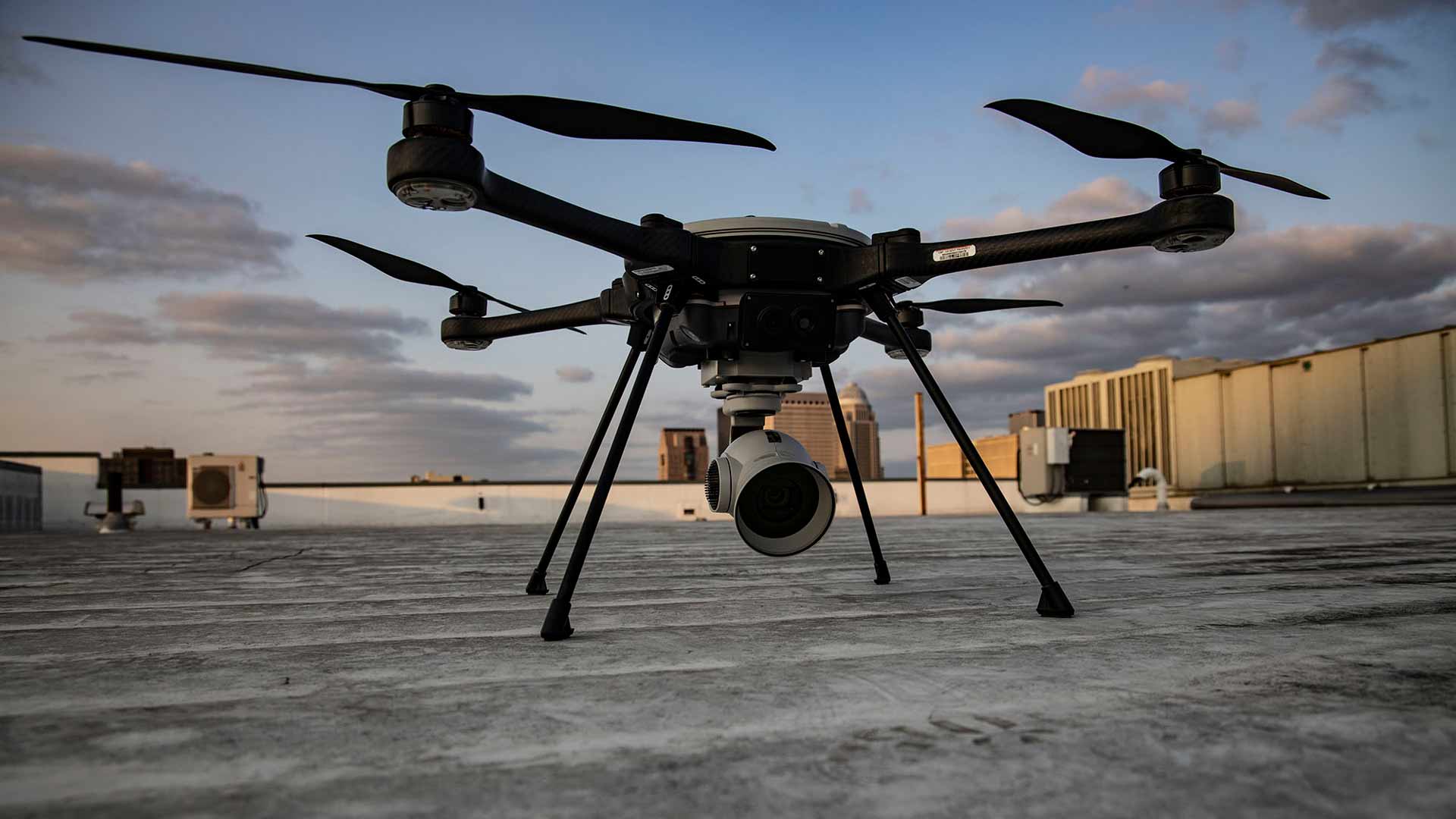 A Customs and Border Protection drone is ready for launch in this undated photo. While U.S. military and border officials use drones for border surveillance, they say cartels may be sending many as 1,000 drones a month across the border to probe for weaknesses and sometimes deliver illicit goods.
A Customs and Border Protection drone is ready for launch in this undated photo. While U.S. military and border officials use drones for border surveillance, they say cartels may be sending many as 1,000 drones a month across the border to probe for weaknesses and sometimes deliver illicit goods.
Cartels are sending as many as 1,000 unmanned drones across the border every month, sometimes smuggling drugs but more often probing the border for vulnerabilities, a Pentagon official told a Senate committee this month.
U.S. Air Force Gen. Gregory Guillot, who assumed command of NORAD and U.S. Northern Command in February, told the Senate Armed Services Committee that countering unmanned aircraft systems had “dominated … the first month” of his tenure. Senators started asking about drone flights around military bases, but the discussion then turned to incursions across the border.
Guillot said he believes the majority of border drone encounters come from “spotters, trying to find gaps, finding out where we are, so they can be where we aren’t” but that “a smaller number that are probably moving narcotics across the border.”
It was not the first time lawmakers have heard reports of massive drone incursions at the border. Gloria Chavez, chief patrol agent for Customs and Border Protection’s Rio Grande Valley Sector, told the House Oversight Committee in February 2023 that her sector had “over 10,000 drone incursions and 25,000 at-the-border drone detections” over a one-year period.
Guillot told lawmakers that he does not believe the drones pose a national security threat, but conceded there is that potential in the future.
“I haven’t seen any threat to the level of national defense, but I see the potential only growing,” he said.
That was little comfort to Rep. Eli Crane, R-Oro Valley.
“It’s extremely alarming when you just refer to the implementation of drones that cartels are now using for their ultimate purpose of making profit,” Crane said.
He said the onus of solving the problem is “100%” on President Joe Biden, on whom he blamed the historic surge in migrants at the southern border.
“To some extent, there is a mass migration of people all over the world, but if you look at where they’re going, they’re going to countries that are opening their borders,” said Crane, adding that the Biden administration’s “policies encourage and facilitate this type of thing.”
But some lawmakers have stepped up.
Sen. Chuck Grassley, R-Iowa, introduced the Drone Act of 2023 last January. That bill, which was co-sponsored by Sen. Mark Kelly, D-Ariz., would make it a crime to fly a drone across the border, use it to deliver contraband or interfere with law enforcement, among other prohibitions.
Sen. James Lankford, R-Okla., introduced the Protecting the Border from Unmanned Aircraft Systems Act, last May. That bill, which was co-sponsored by Sen. Kyrsten Sinema, I-Ariz., would require more interagency collaboration to stop drone incursions.
Neither bill has received a Senate vote.
Guillot said he does not know the actual number of drone incursions, “I don’t think anybody does, but it’s in the thousands.” Neither the Federal Aviation Administration nor the Department of Homeland Security was able to provide Cronkite News data on drone incursions.
Guillot added that some of the drone activity at the border is “our own. It’s doing the same thing, to try to find where that activity is and make sure that we’re prepared to stop it.”
He said that some steps have been taken to combat the encounters, but more work needs to be done to make sure the drone threat can be responded to “safely, without interfering with our airspace structure.”
“The (military) services do have authorities, but work remains to be done to ensure that there are resources there quickly and that we have standardized operating procedures to address those threats,” Guillot said.

By submitting your comments, you hereby give AZPM the right to post your comments and potentially use them in any other form of media operated by this institution.